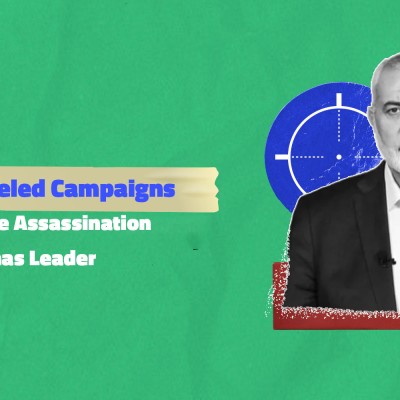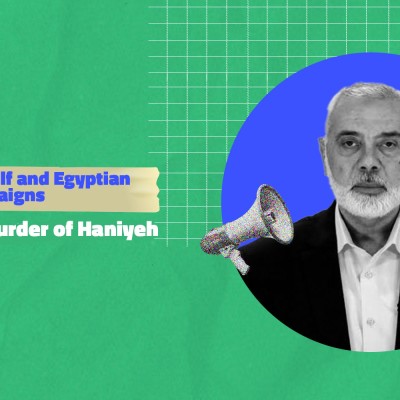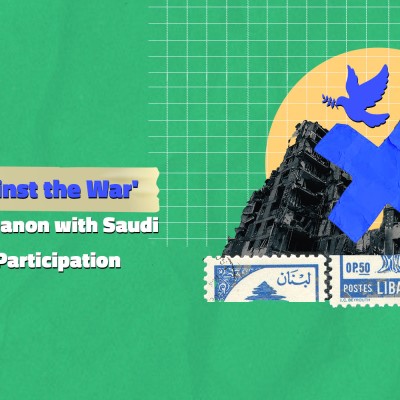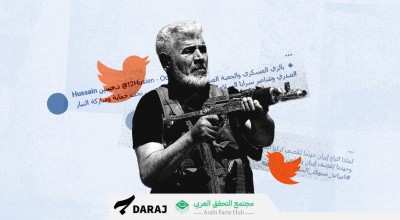Jordan: Wave of Blogging Against Calls for a General Strike in Support of Gaza
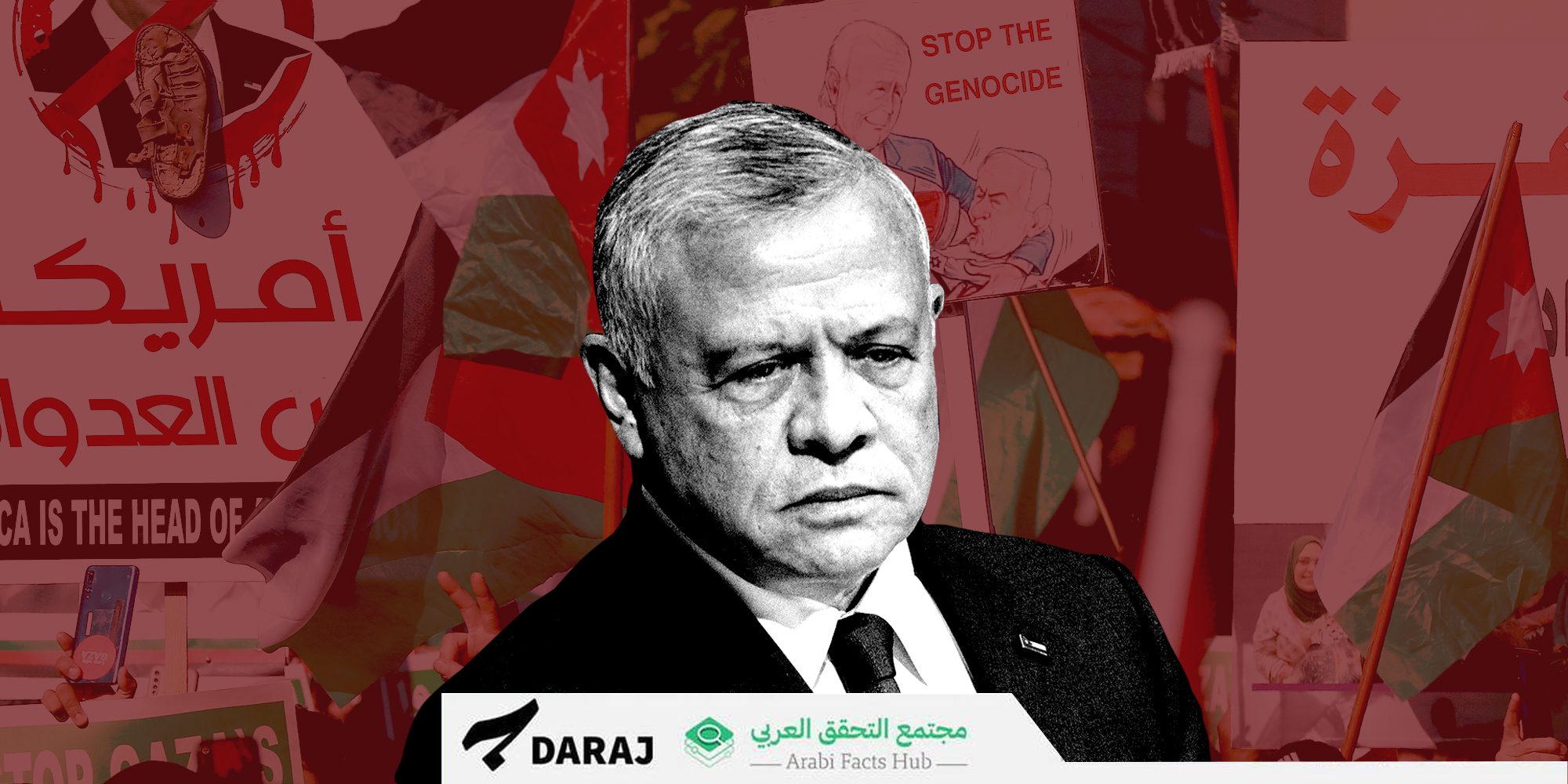
Accounts with a history of involvement in nationalist campaigns, and other campaigns against refugees and immigrants in Jordan, participated in the blogging wave against calls for a general strike in support of Gaza. They attacked armed factions in Gaza and downplayed the significance of calls to boycott Western brands.
Activists and social media influencers called for a global general strike on Monday, December 11th, to demand a ceasefire in Gaza, where at least 18,000 people have been killed since Israel began its war over two months ago. The death toll has now exceeded 20,000. The call came after the United States blocked the passage of a resolution in the United Nations Security Council calling for a halt to the war on Friday, December 8th.
The hashtags #GeneralStrike and #StrikeforGaza topped the list of the most trending topics on social networks, especially on X. The first hashtag included about 850,000 tweets, and the second had 1.7 million tweets. The peak was reached on December 11th with 848,000 tweets, according to statistics from Meltwater, a leading social media activity analysis platform.
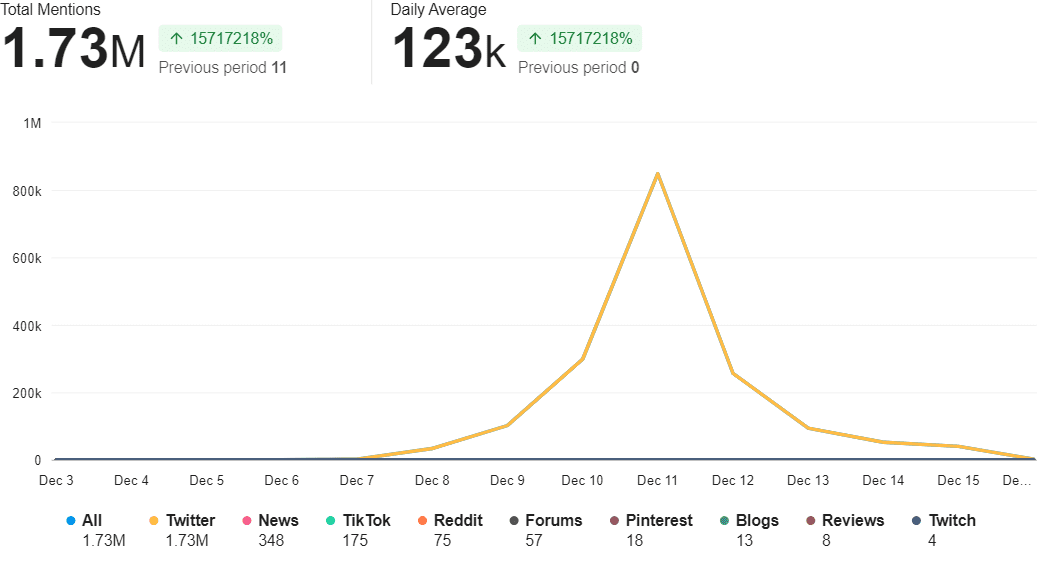
#StrikeforGaza activity – Meltwater
Just as Jordan was among the countries that contributed the most to the tweets supporting the strike, there was also a wave of tweets opposing the idea of a strike in the kingdom. Several hashtags were active, some newly created, such as #TheStrikeDoesNotRepresentMe. Other hashtags were linked to a nationalist discourse defending the official narrative, which was previously used in campaigns of trolling and propaganda. These included the hashtag #Jordan_is_a_RedLine.

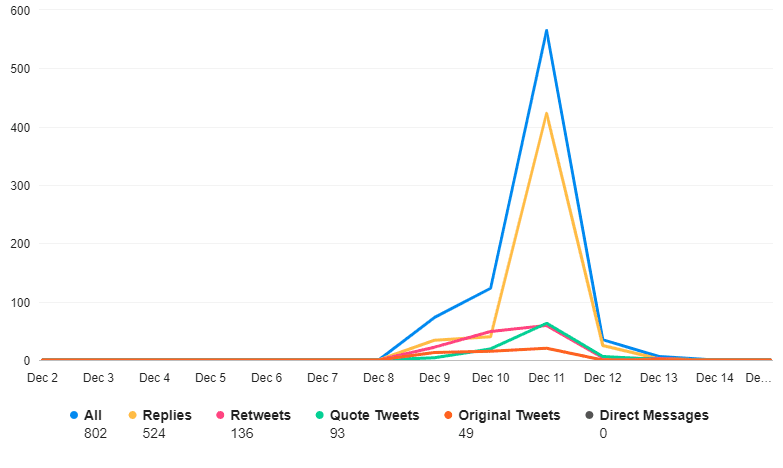
Activity on #Jordan_is_a_RedLine – Meltwater
On X, #TheStrikeDoesNotRepresentMe was mentioned about 805 times, viewed 363,000 times, with a potential reach of about 1.383 million people, according to Meltwater. The percentage of original posts using the hashtag was only 6%, while 65.7% of the posts were replies, in addition to 16% being retweets/reposts, and 11.5% being quoted tweets. The chart below illustrates how the activity on the hashtag started and peaked on the day of the strike, December 11th.
.png)
Activity Times for #TheStrikeDoesNotRepresentMe
What does the hashtag content say?
The content of the hashtags #TheStrikeDoesNotRepresentMe and #Jordan_is_a_RedLine uses repetitive claims against the strike organizers.
Among the prevailing narratives in the anti-strike hashtags:
- Exaggerating the negative impact of the strike on the Jordanian economy, and circulating statements from officials and government entities about possible losses due to the protest.
- Highlighting Jordan's official position rejecting the attack on Gaza.
- Emphasizing the continuation of daily work.
- Casting doubt on the goal of the strike, along with questioning whether it is a "global strike."
- Attacking the strike advocates and participants through comments describing the strike as a "confused destructive idea" carried out by "traitors and agents" for "populist and partisan purposes."
About 640 accounts participated in the wave of tweeting on the hashtag #TheStrikeDoesNotRepresentMe, some of which had previously engaged in promotional electronic campaigns supporting the government. Some accounts participating in the hashtag consistently directed criticism at the armed factions in Gaza, attacked Abu Ubaida, the spokesman for the Al-Qassam Brigades, and downplayed the significance of calls to boycott companies complicit in the war, accusing them of resembling the actions of Arab nationalist groups and similar to Israeli propaganda accounts. They were also accustomed to promoting misleading information.
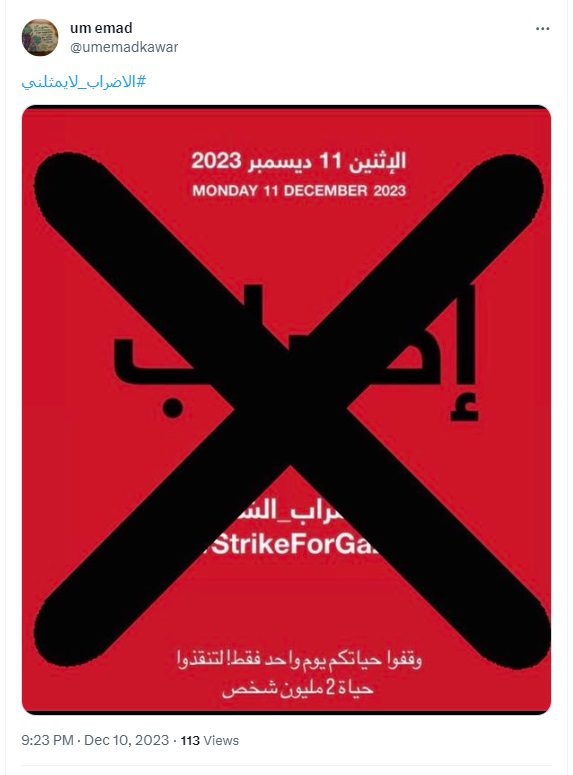
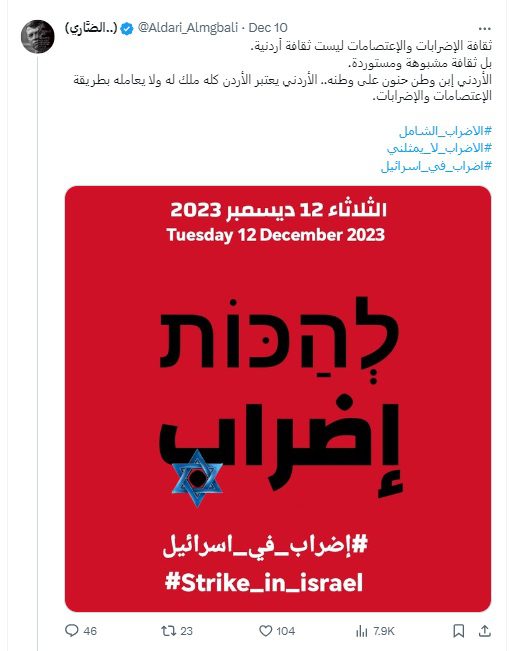
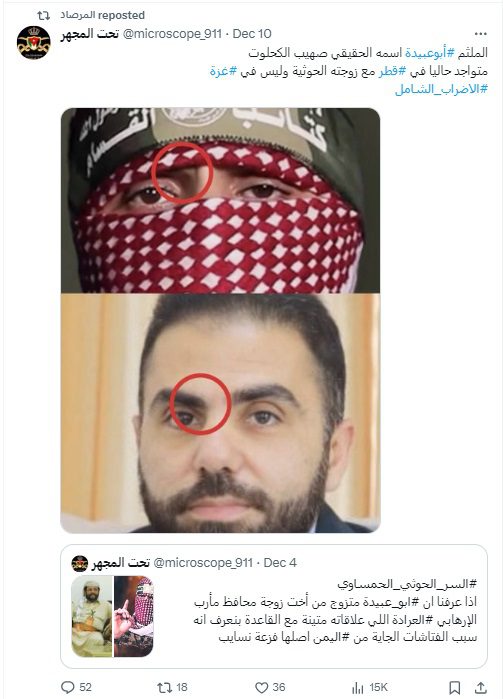


The account of Aldari - @Aldari_Almgbali, followed by more than 9,000 accounts on X, is one of the prominent influential accounts in posting on #TheStrikeDoesNotRepresentMe. It is also one of the leading initiators of cyber campaigns in Jordan.
In previous analyses, we demonstrated Aldari's role in launching campaigns and amplifying the official narrative and nationalist discourse opposing the presence of refugees and immigrants in the kingdom. The account has a photo that shows its owner with the Jordanian monarch, who appears younger in the shot, indicating that it was taken in a few years ago. He is also active in various Jordanian nationalist groups on Facebook.

At the same time, the hashtag #Jordan_is_a_RedLine regained its activity. The hashtag experienced a vertical leap similar to that of the #TheStrikeDoesNotRepresentMe. This leap is usually an indicator of coordinated activity.
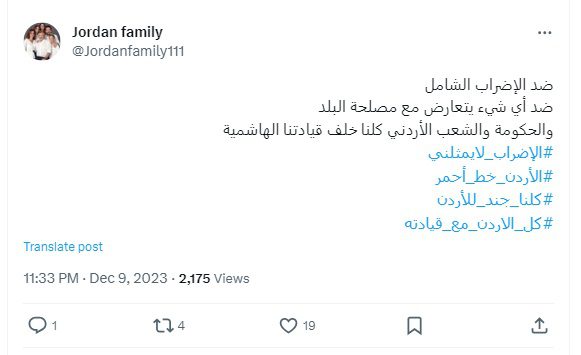
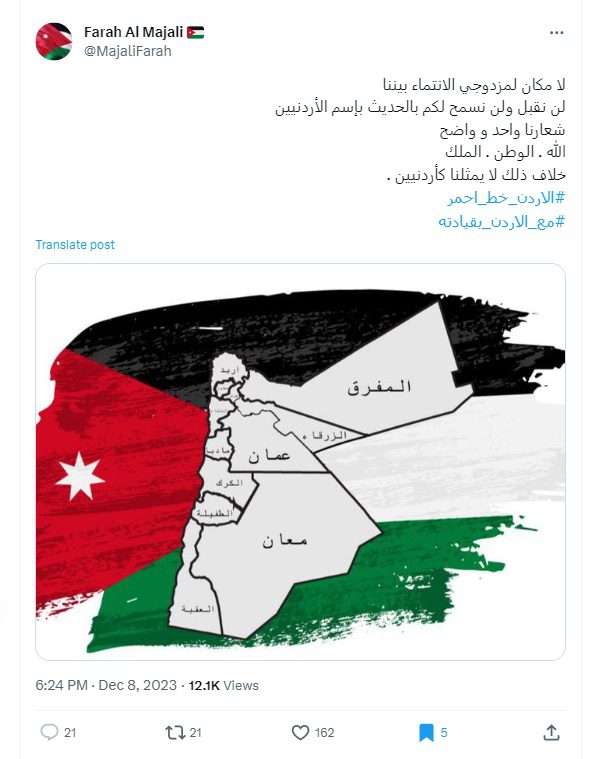
The hashtag was shared at least 24,800 times, viewed 363,000 times, and had a potential reach of around 1.363 million people. In recent years, this hashtag has appeared through nationalist groups using it to express support for the government, promote official positions, and engage in promotional activities on the sidelines of any events or developments that may spark controversy in Jordanian society.
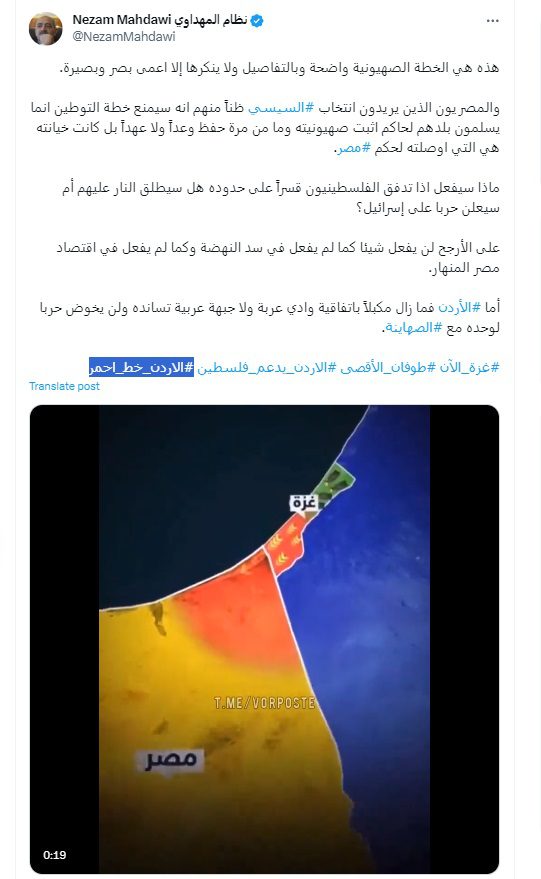
Activity on #Jordan_is_a_RedLine – Meltwater
The content of both hashtags converge with their emphasis on the harmful impact of the strike on the Jordanian economy.
Later on, influential accounts supporting the strike interacted with its critics through the hashtag #Jordan_is_a_RedLine. They rejected the attempt to distort the calls for protest. Arab accounts attempted to capitalize on the popularity of the hashtag to spread their ideas, especially those related to the war in Gaza.
Official statements
Before and during the strike, non-confrontational government statements towards the strike were issued, and government newspapers joined a wave of criticism against the protest. Statements by the government's Minister of Communication, Muhannad Al Mubaidin, became the focal point of the media and accounts supporting the official narrative. He called for "more effective alternatives that align with Jordan's unity," emphasizing Jordan's official stance on the Israeli war in the occupied territories. He stated that Jordanians must dedicate a day of their labor to the people in Gaza instead of going on strike.
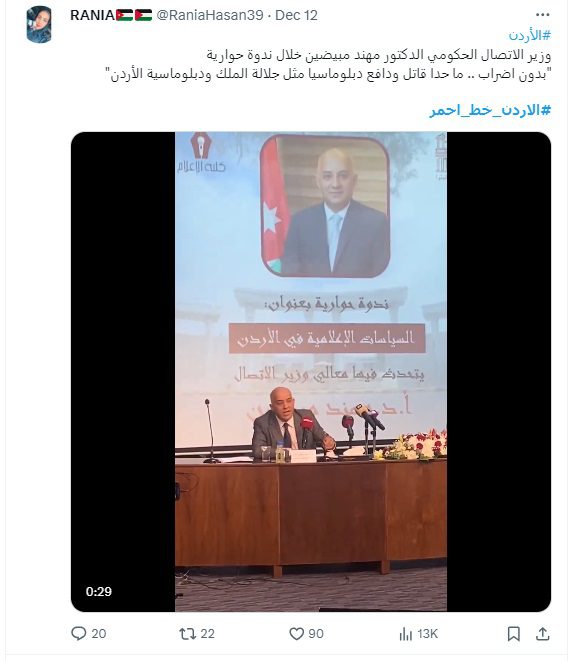
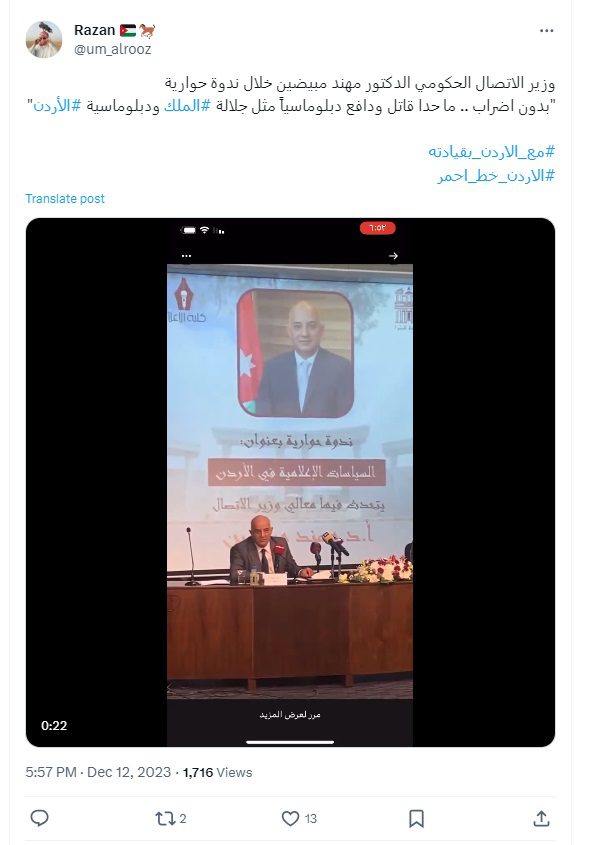
Al-Ra’y government-owned newspaper published reports criticizing the calls for strike, which it labeled “suspicious,” and “adopted by unpatriotic entities”
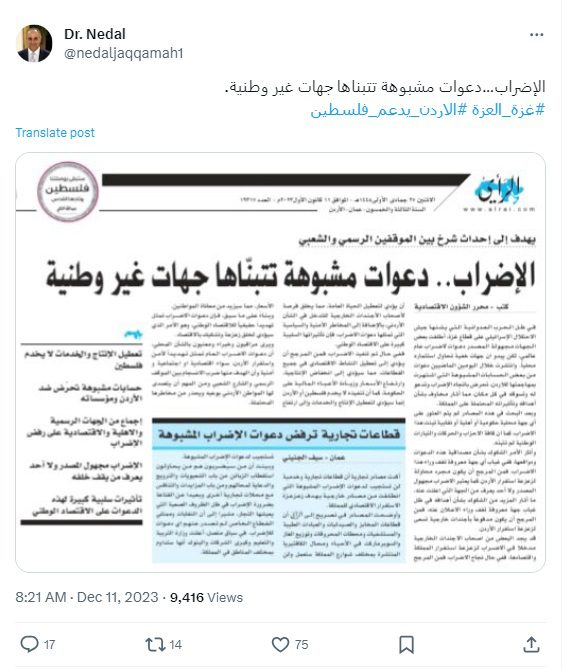
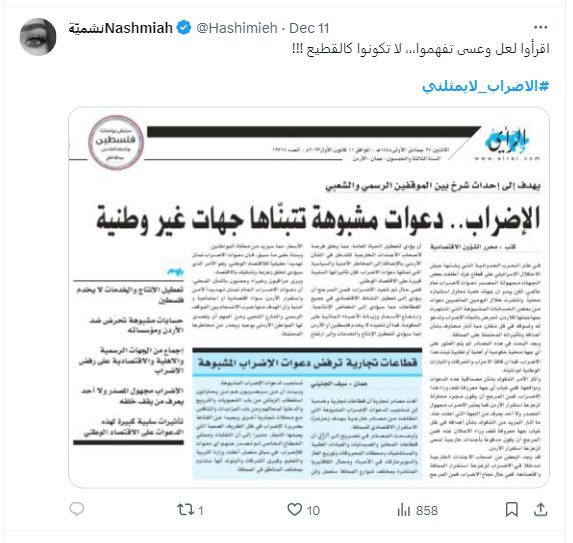
The anti-strike blogging wave in Jordan involved accounts that had previously been involved in nationalist campaigns and others opposing refugees and immigrants in Jordan. During the war in Gaza, these same accounts attacked the armed factions in Gaza and downplayed the significance of calls to boycott Western brands.
Government officials reacted to the strike, calling for "appropriate alternatives" for the Jordanian scene, while government media attacked the strike and described its organizers as suspicious, unpatriotic entities. Some Arab accounts capitalized on the popularity of the hashtags to gain more visibility when commenting on ongoing developments in Gaza.

